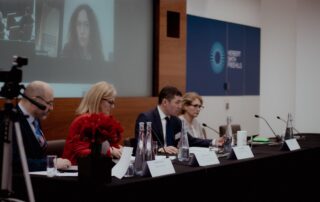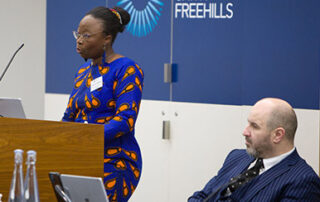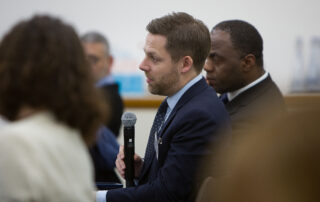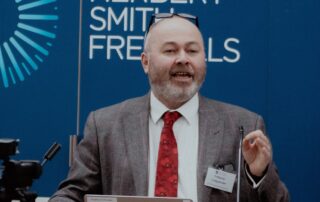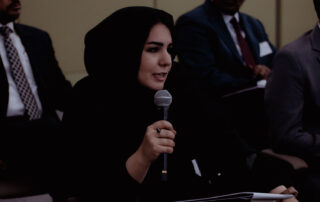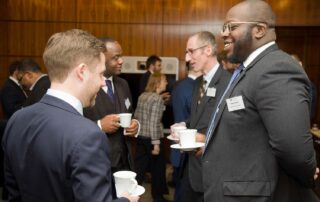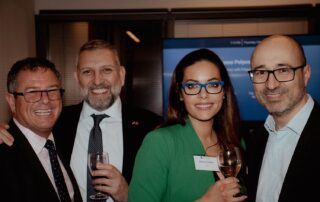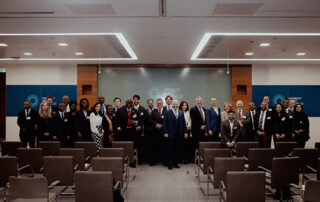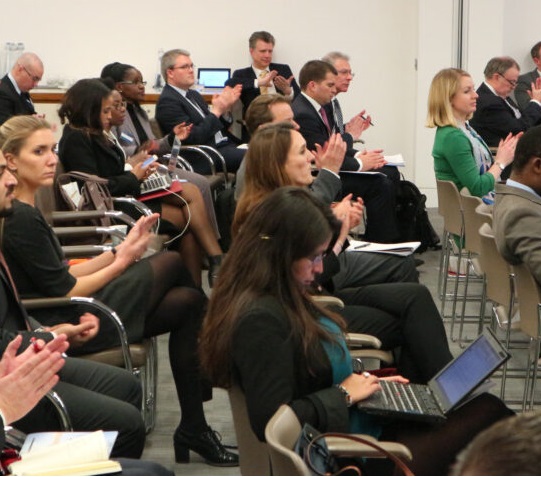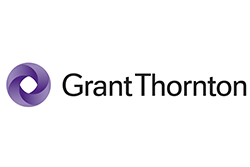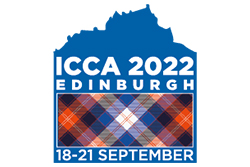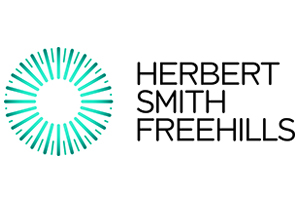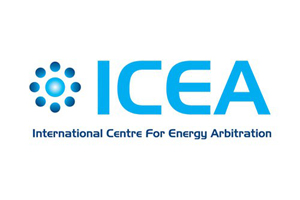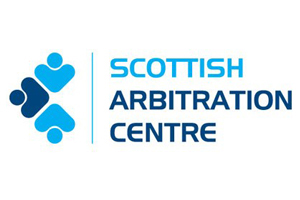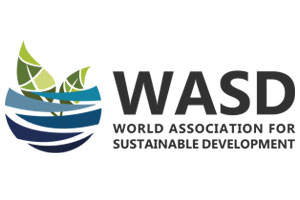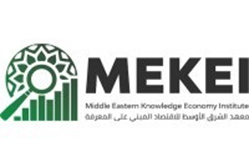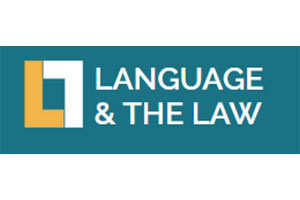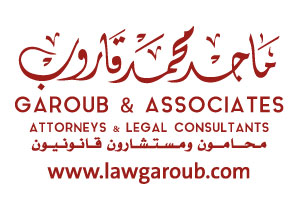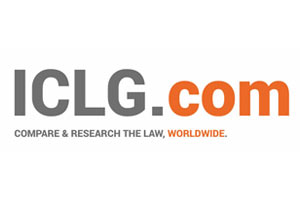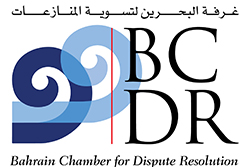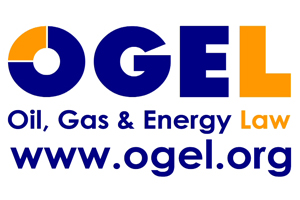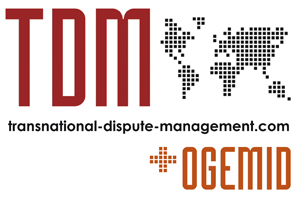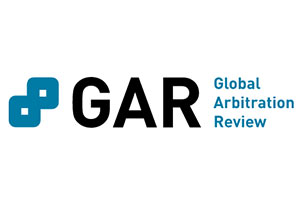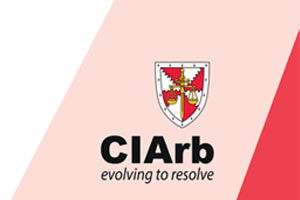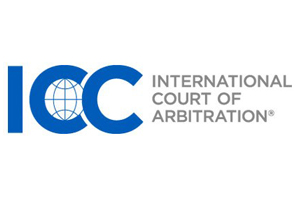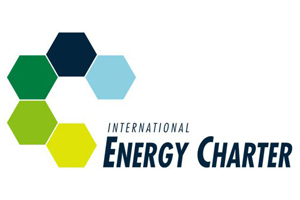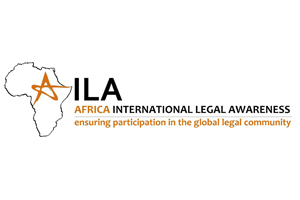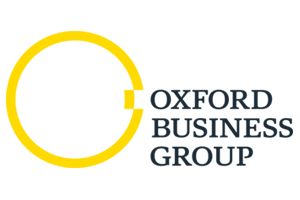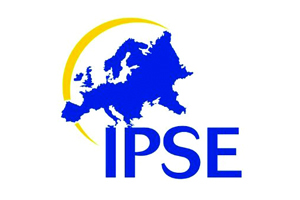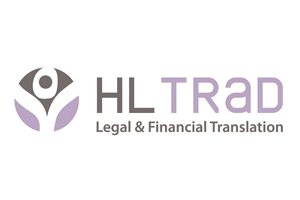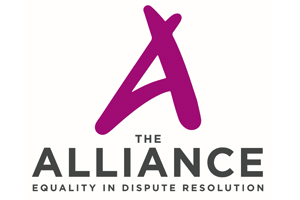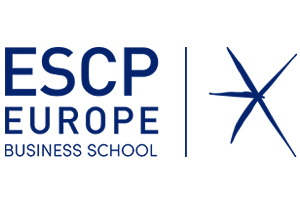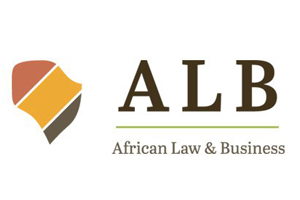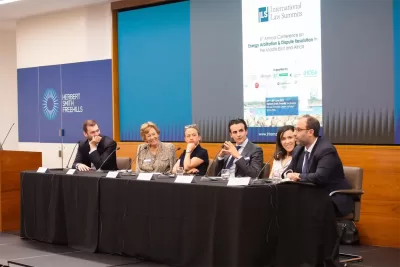
6th Annual Arbitration Conference, June 2023
The sixth annual conference on Energy Arbitration and Dispute Resolution in the Middle East and Africa was attended by over one hundred in-person attendees from across the world and included representatives from government, legal practice, industry, diplomacy and academia. Keynote addresses were delivered by Lise Boseman (Executive Director of the International Council for Commercial Arbitration (ICCA) and Senior Legal Counsel at the Permanent Court of Arbitration (PCA)), and Craig Tevendale (Partner and Head of Energy Group UK at Herbert Smith Freehills). This was alongside participation from over thirty high-profile speakers. Some of the key themes across the conference’s varied programme encompassed the ongoing implications of the Energy Transition, including infrastructure development and related transboundary issues. The event also assessed the success of renewed efforts by investors to implement Dispute Avoidance measures.
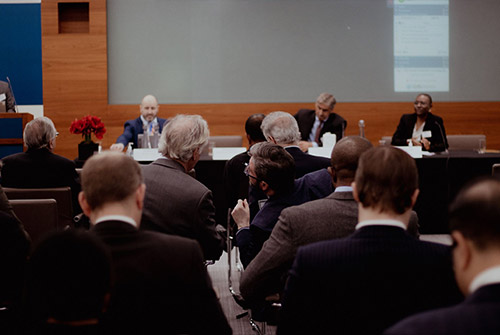
5th ANNUAL ARBITRATION CONFERENCE, February 2022
ILS’s 5th Annual Conference on Energy Arbitration and Dispute Resolution in the Middle East and Africa took place on the 10th and 11th February 2022 at the London offices of Herbert Smiths Freehills. The event was sponsored by Grant Thornton and Burford Capital, and supported by a number of international arbitral institutions. The 2-day conference was attended by over one hundred in-person and virtual attendees from across the world which included representatives from government, legal practice, industry, diplomacy and academia. Leading voices in the fields of international law, international relations and energy law discussed the legal, geopolitical, economic and international security dimensions of energy disputes in the Middle East and Africa, as well as offering practical guidance for their successful resolution.
Keynote addresses were delivered by Lord Angus Glennie (Appeal Judge at the Dubai International Financial Centre courts) and Diamana Diawara (Africa Regional Director at the ICC), alongside participation from over 20 high-profile speakers from international arbitral institutions, leading legal practices and specialist academic centres.
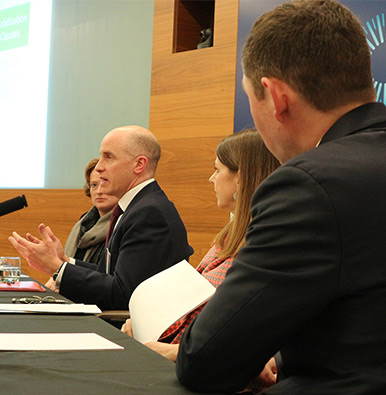
4th ANNUAL ARBITRATION CONFERENCE, March 2019
Our 4th Annual Conference on Energy Arbitration and Dispute Resolution in the Middle East and Africa evaluated a broad range of technical, economic and diplomatic factors integral to dispute resolution in the region, focusing particularly on the impact of oil price variations and regional security issues across the continent. The unique event brought together numerous high-profile stakeholders from a variety of sectors including government officials, diplomats, arbitration institutions, energy professionals, legal practitioners and academics.
The conference facilitated a high level of knowledge-exchange on the dynamic nature of energy law and, consequently, energy arbitration wherein the notable developments in the international law sphere were consistently reiterated and used to inform the discussion.
3rd ANNUAL ARBITRATION CONFERENCE, March 2018
In its 3rd year, the Annual Conference on Energy Arbitration and Dispute Resolution in the Middle East and Africa analysed the factors affecting the industry from technical, economic and diplomatic standpoints, with Senior Advocate of Nigeria, Funke Adekoya delivering the keynote speech. The event successfully generated expert insights, high-level theory and, crucial, practical guidance in relation to Dispute Resolution and Arbitration that were shared by key stakeholders including representatives from the energy industry, senior government officials, academics and prominent legal practitioners in this field.
Sessions included discussions surrounding the Impact of the One Belt One Road (OBOR) initiative on the Middle East and Africa and Energy Poverty in energy-rich countries, with particular attention to regional focus such as East Africa. These specific discussion-points resulted in lively debate in which attendees deliberated how these issues affect parties involved in disputes, with many putting forward strategies that may help to manage the risks associated with international energy contracts.
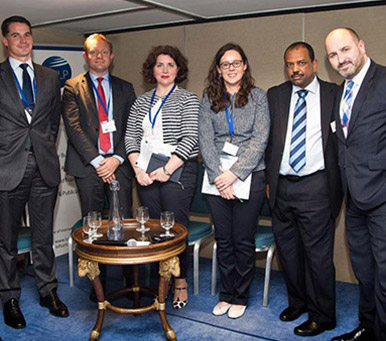
2nd ANNUAL ARBITRATION CONFERENCE, March 2017
ILS successfully hosted its 2nd Annual Conference on Energy Arbitration and Dispute Resolution in the Middle East and Africa in March 2017, receiving excellent feedback from delegates on the design and execution of the programme. Having established itself as an industry event after its inaugural 2016 edition, the conference once again facilitated an important medium for like-minded professionals in the energy sector to expand on their knowledge and skills and connect with international peers. Following a keynote speech delivered by Gary Born of Wilmerhale, more than 20 of the leading figures in the field gave regional focus sessions, practical tips for arbitrating energy disputes and in-depth analyses of significant new developments.
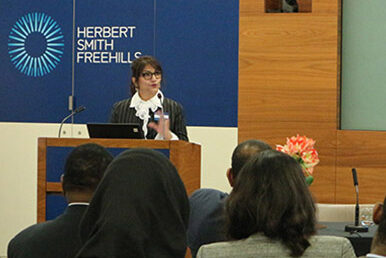
1st Annual Arbitration Conference, March 2016
This Conference was hosted by the International Law Summits (ILS) and co-organised by the Saudi Law Training Centre (SLTC). The Conference addressed the challenges in the then-current context marked by political instability and a drop in oil prices that is currently affecting the energy market in the Middle East and Africa.
Some of the main themes throughout the Conference and Workshops included, amongst others, a global insight into energy arbitration and dispute resolution, energy arbitration in the regional context of Africa and the Middle East and technical legal considerations in energy disputes. Other relevant topics included investor protection, renewable energy and state actors, varying case studies on energy related disputes and more.
International Sanctions: Legal, Policy and Business Challenges, March 2015
This conference put into perspective the proliferation of sanctions regimes enacted either by the UN Security Council, regional organisations or individual States against the economies of other countries, or targeted entities and individuals. As a consequence, the resulting crucial and highly complex issues in terms of international responsibility, human rights, available remedies, and impact on cross-border trade and investment, were central to the discussions.
The conference contained contributions from international luminaries including Matthew Happold from the University of Luxembourg; Alfred de Zayes, UN Independent Expert on the Promotion of a Democratic and Equitable International Order and Pierre-Emmanuel Dupont. The event was supported by a large number of organisations including the International Law Association, the Middle East Association, and the Grotius Centre.
Maritime Delimitations and Hydrocarbon Resources in Central America and the Caribbean
July 2017
This one-day event addressed the status of maritime boundary delimitations in the region, in light of recent geological surveys on the energy potential of its maritime zones. During the symposium, the applicable international legal framework was outlined, and thorough examinations of already concluded bilateral maritime boundary delimitation agreements, precedents in international adjudication cases relevant to contested maritime zones in the region, and of existing international and regional frameworks on the management of straddling and transboundary resources, were made.
International Law and the Territorial Gains and Losses of Non-State Armed Groups
October 2016
The seminar featured a diverse panel of experts with a keynote address by Rt Hon Mark Simmonds, the COO of the Counter Extremism Project & Senior Advisor at Kroll. The event was successful in attracting members from a number of embassies, renowned academics, lawyers and a representative for the International Maritime Organisation.
Public and Private Perspectives on Tackling Corruption
September 2016
With an increasing awareness of the destructive impact of corruption upon development, enhancing anti-corruption strategies has become a major priority for public sector organisations. However, corruption is not only a matter for the public sector and should be tackled through innovative mechanisms which encourage collaboration between both the public and private sectors. This expert roundtable, convened by the Centre for Anti-Corruption Law, Policy and Compliance, part of ILS, gathered anti-corruption law experts, diplomats, academics and practitioners to reflect on the importance of tackling corruption in both the public and private sector.
The roundtable presented an important opportunity for ILS and the Centre for Anti-Corruption Law, Policy and Compliance to speak to parties interested in issues surrounding corruption including diplomatic staff and some from the corporate sector. Following up from this event with potential partners and clients is a key part of ILS’ business development strategy moving forward.
COP and post-COP: Climate change law in and after Paris
January 2016
In December 2015, the international community met in Paris for a climate summit that many experts considered to be the last opportunity to avoid catastrophic climate change. The Paris Agreement had been hailed by many as a historical landmark and the French Presidency labelled it as universal, fair and legally binding.
Against that background, this high-level event took place just over one month after the conclusion of the Paris summit, and allowed timely reflection on its outcomes. The event featured a distinguished group of experts who attended the Paris Conference. The event was organised by 6 Pump Court Chambers in collaboration with the Strathclyde Centre for Environmental Law and Governance and ILS.
International Sanctions in Practice: Legal and Business Implications
March 2015
In light of recent developments concerning international sanctions concerning countries including Russia, Cuba, Venezuela, Iran and a number of Arab countries, ILS hosted a two-day workshop on the topic. The training workshop on International Sanctions in Practice: Legal and Business Implications provided a comprehensive overview of legal and business issues raised by the implementation of international sanctions regimes.
The workshop also assessed the policy and business implications of the proliferation of sanctions regimes, from coercive measures enacted by the UN Security Council and regional organisations to ‘unilateral sanctions’ implemented by individual States, as well as the comprehensive and sector-specific embargoes and ‘targeted’ measures against listed entities and individuals.
Recovering the Proceeds of Corruption and Dealing with Government Contracts Procured by Bribes
December 2014
To mark International Anti-Corruption Day, on the 9th December 2014, ILS, in conjunction with Edwards Wildman LLP, hosted an event at the Institute for Strategic Studies in London. The seminar focused on the vital and topical subject of recovering proceeds of corruption through criminal and civil mechanisms.
Additionally, the issues surrounding the dealing with government contracts procured through bribery, were also examined. The panels examined asset recovery mechanisms, mutual legal assistance, corrupt contracts and concessions and litigation funding for asset recovery cases. Panellists included James Maton and James Humphreys from Edwards Wildman (now Cooleys LLP), Professor Peter Alldridge and Huw Shepheard from Queen Mary University of London and Malins Chamber respectively.
IHL and Humanitarian Access to Protected Persons in Non-International Armed Conflict in the Middle East
August 2017
This high-level workshop outlined the applicability of International Humanitarian Law (IHL) and the issue of humanitarian access to protected persons in present situations of Non-International Armed Conflict (NIACs) in the Middle East. It was delivered by Visiting Professor at Sciences Po Paris, Paris School of International Affairs, and Former Senior Operational Manager & Current Senior Diplomatic and Legal Advisor at the International Committee of the Red Cross (ICRC) Dr. Patrick Zahnd.
The workshop was attended by a range of professionals from international governments and non-governmental organisations with an interest in International Humanitarian Law and the Middle East as well as international bodies.
Oil & Gas In The Caricom: Training and Competency Development
September 2015
In conjunction with Impact Justice project, The University of the West Indies, The University of Calgary and The Government of Canada, ILS provided a high-level training programme for senior political and governmental officials from the Caribbean region focused on Oil and Gas Law in the region. The programme covered topics including: Petroleum Contract fundamentals, negotiation and documentation; impact of Fiscal Systems and Taxation; dispute resolution; and health and safety and the environment.
The event was held in Barbados and was attended by senior government officials, including Attorney Generals, and representatives from Barbados, Guyana, Antigua and Barbuda, Montserrat, St Vincent, Suriname and Trinidad and Tobago as well as academic representatives and professional representatives from across the region. Feedback from the event was extremely positive.
International Sanctions in Practice: Legal and Business Implications
March 2015
In light of recent developments concerning international sanctions concerning in countries including Russia, Cuba, Venezuela, Iran and a number of Arab countries, ILS hosted a two-day workshop on the topic. The training workshop on International Sanctions in Practice: Legal and Business Implications provided a comprehensive overview of legal and business issues raised by the implementation of international sanctions regimes.
The workshop also assessed the policy and business implications of the proliferation of sanctions regimes, from coercive measures enacted by the UN Security Council and regional organisations to ‘unilateral sanctions’ implemented by individual States, as well as the comprehensive and sector-specific embargoes and ‘targeted’ measures against listed entities and individuals.
ITLOS at 20 – Impacts of the International Tribunal for the Law of the Sea
May 2016
On 23 May 2016, ILS convened an invitational event at Gray’s Inn to reflect upon the 20th anniversary of the establishment of the International Tribunal for the Law of the Sea (‘ITLOS’). Featuring a diverse panel of experts and a keynote address by H.E. Judge Vladimir Golitsyn, President of ITLOS, the event attracted members of the London diplomatic community, representatives of international organisations, renowned academics, and law of the sea practitioners and technical experts.
Panelists included Professor Malgosia Fitzmaurice (Queen Mary University of London) and Mr. Coalter G. Lathrop, the Principal of Sovereign Geographic and Editor-in-Chief of International Maritime Boundaries. The event was attended by distinguished guests including senior diplomats, academics and officials from officials including the International Maritime Association.
Counter-Terrorism: International Initiatives, Perspectives and Challenges
November 2014
ILS’ first event involved a panel discussion which featured renowned speakers from a varied field of knowledge and expertise on the legal discourse pertaining to counter-terrorism initiatives. Discussions were held on the latest criminal justice responses, UN and UN Security Council activities, the Global Counter-Terrorism Forum (GCTF), challenges posed by foreign terrorist fighters, developments in countering the financing of terrorism (CFT), and ways forward in combating violent extremism (CVE).
Panellists included Martin Polaine, Arvinder Sambei and Irene Couzigou, from the London Academy of Diplomacy, Professor Charles Chatterjee and Roger McNally as well as Tim Daniel from Edwards Wildman Palmer LLP (now Cooley’s LLP), Roger Smart from QEB Holis Whiteman and Eelco Kessels, a Senior Analyst at GCCS. The event was attended by a wide range of diplomatic, academic and legal personnel.

